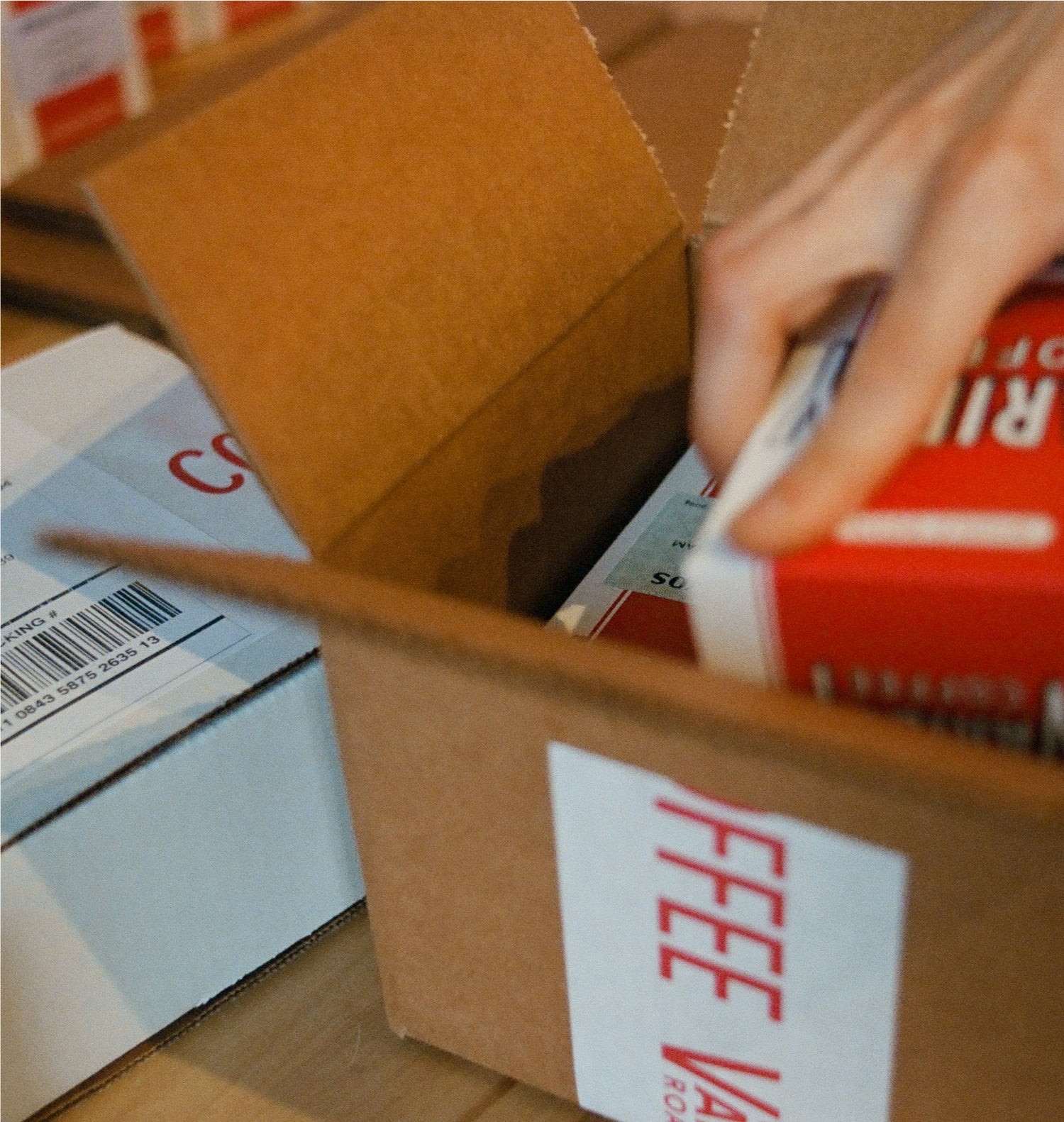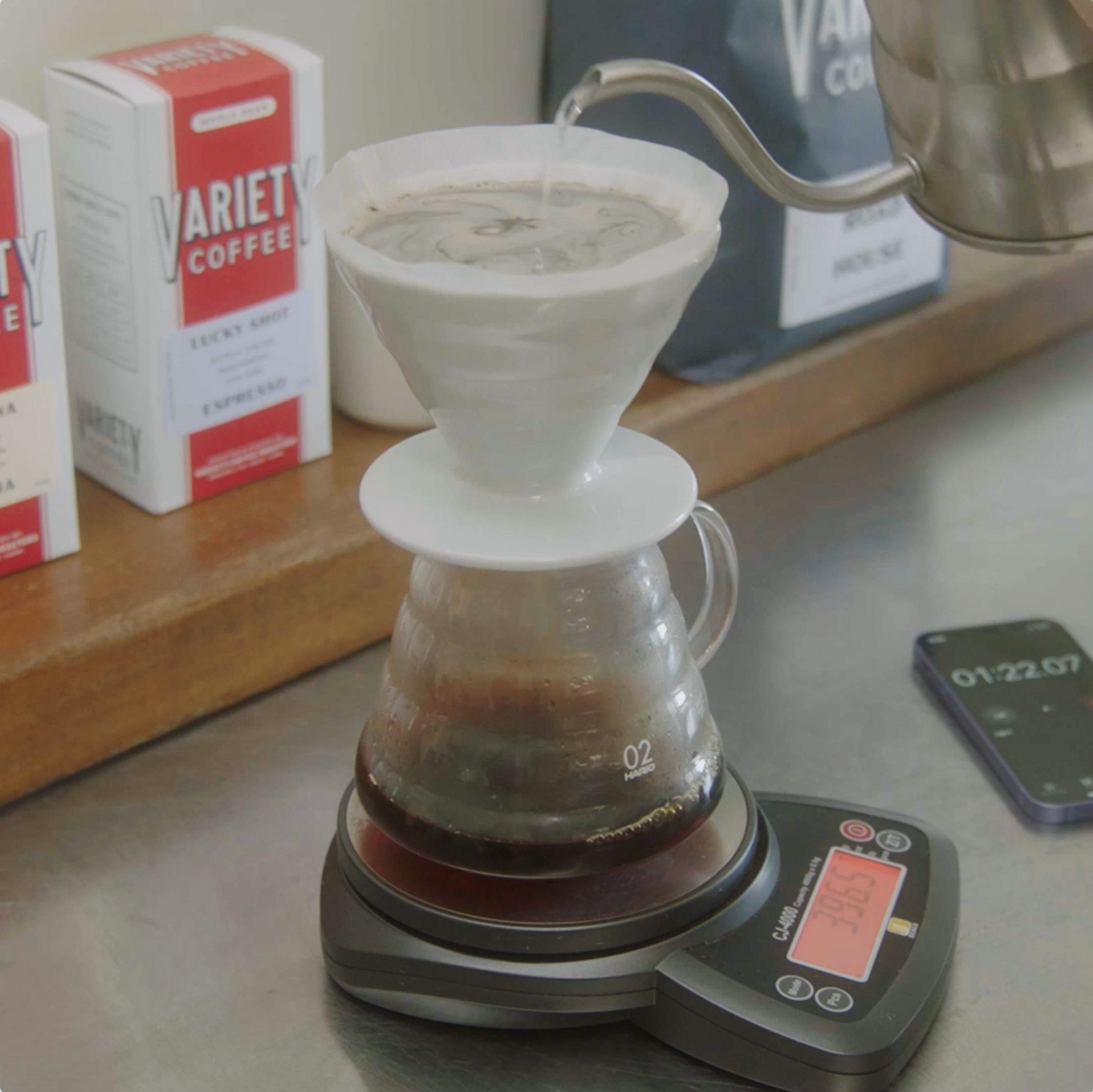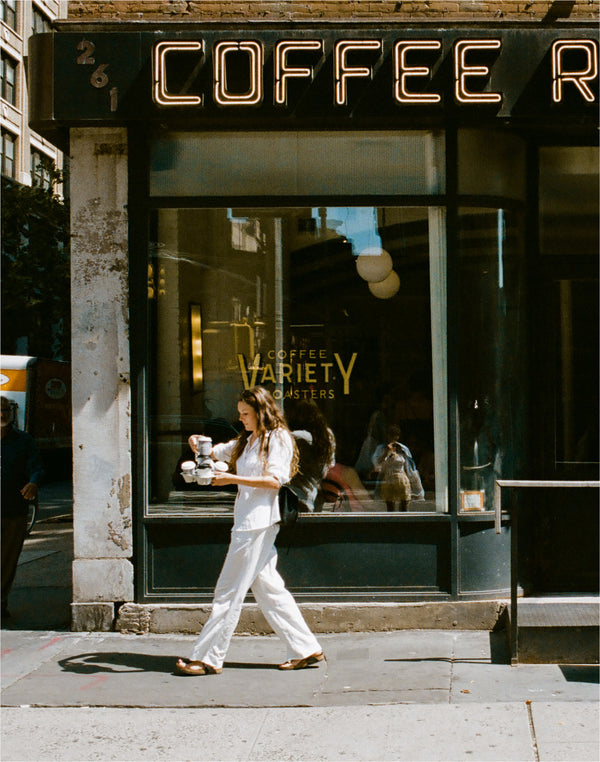With 950 members, Kiangoi factory has high quality control standards that shine through in the end cup. The area (part of the larger Kirinyaga region) experiences a biennial production cycle with the early harvest being from April to June and the late second season being from October to December. The main coffee varieties grown are SL28, SL34 and Ruiru 11, with SL28 and SL34 accounting for 99% of all coffee produced while Ruiru 11 accounts for 1% of production. After harvest, ripe coffee cherries arrive at the factory. There, it undergoes processing to remove the skin and pulp. Wastewater is discarded in soaking pits, and is then recirculated for conservation. The factory uses a disc pulper with 3 sets of discs to remove the skin and fruit from the inner parchment layer that is protecting the green coffee bean. After pulping, the coffee is fermented in fermentation tanks overnight to break down the sugars. Then it’s cleaned, soaked, and spread out on the raised drying beds. Time on the drying tables depends on climate, ambient temperature and volumes under processing, and can take from 7 to 15 days in total.
Kirinyaga Kiangoi Washing Station is located in the central part of Kirinyaga County, in the buffer zone surrounding Mount Kenya National Park. The processing plant uses water from the Nyamindi River to process the coffee. This river is also the main source of water for the population adjacent to it. The Kirinyaga area has a long chain of mountains that help provide a diversity of altitudes and terrain for coffee cultivation. While this could seem like an obstacle to access (as it is in Peru where the presence of Andes means getting to a farm can take 7+ hours by road), in Kirinyaga the farms are only about a 30 minute trail walk (1-2 km) from the washing stations. Only in the rainy season does access become complex as mud makes these unpaved trails challenging to navigate. The entire Kirinyaga county has around 600,000 residents whose main economic pillar is coffee. Farmers also grow tea, macadamia, bananas, corn, and in lower areas many raise cows for milk production.









